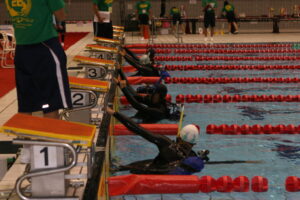
According to a study by Divers Alert Network (DAN), fatal incidents occur in 1 out of every 211, 000 dives. Scuba diving is an exhilarating sport that pushes your adrenaline to the limit. And as with many adventurous sports, there are certain risks involved that may sometimes be fatal. Good fundamental diving skills along with proper risk management can be crucial in a life or death situation. Divers should be properly trained in various situations and how to respond accordingly to unexpected situations. Here are basic first aid skills every scuba diver must know.
Emergency First Response (EFR)
Research by DAN found that diving has a lower fatality rate when compared to swimming or jogging. However, this doesn’t mean that the basic first-aid and CPR skills should be ignored by divers. An Emergency First Response course is usually available from your PADI instructor as supplementary training to dive courses. EFR courses include CPR, first-aid, and external defibrillator first-response courses that cover many of the same skills taught by the Red Cross and similar health organizations. Not to mention, the use of a defibrillator and understanding oxygen administration is essential for all divers and non-divers alike.
Accident Prevention with Primary Care
In scuba diving, the prevention of accidents and their consequences is crucial. Many scuba accidents can be attributed to the inexperienced driver and should therefore not be attempted alone for the first time. One of the most common mistakes is rapid ascension after a deep dive that leads to decompression sickness. Decompression sickness or ‘the bends,’ is due to air embolisms or pockets that form in your blood due to the pressure differences in ascension. This can be avoided by carefully planning your dive, slowly ascending from your depth, and to avoid drinking alcohol or flying 24 hours before or after a dive.
First Aid for Stings, Punctures, and Bites
There are over 9,000 types of jellyfish in the ocean, and they can deliver powerful, painful, and sometimes toxic stings. In most cases like stings, it is best to immediately wash the area with seawater or vinegar. It is also advised to remove stingers with tweezers, as it may still be capable of irritating the skin if removed with bare hands.
Punctures can occur from sea urchins, cone snails, or lionfish. It is best to wash the wound in hot water for 30-90 minutes and seek medical care as some punctures may need surgical intervention. Bites should be irrigated with freshwater and should be gently washed with soap. For bites associated with snakes or marine animals, seek help immediately and if possible take a picture of the animal responsible as some bites may be poisonous if proper intervention is not done.
One principle of diving is the understanding of your environment. Knowing where it is safe to resurface to avoid accidents such as trauma from hitting the sides of boats or other diving equipment, distance from rocks or shores as to avoid damaging equipment that helps keep you submerged. Proper coordination with diving team members when underwater is also crucial in preventing diving accidents and fatalities.
Read More Scuba Features, DAN, Divers Alert Network, EFR, Emergency First Response, First Aid, First Aid Training, Health and Safety The Scuba News


